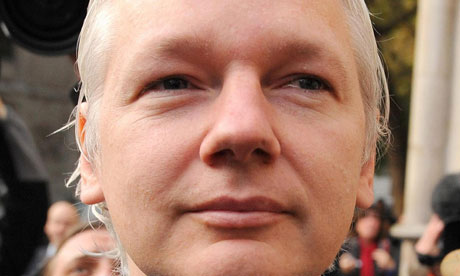As the drama unfolds over Julian Assange's bid for political asylum in Ecuador, a troubling irony has emerged: the besieged founder of WikiLeaks is seeking refuge in this small Andean nation because he fears persecution from the United States, a nation whose laws famously grant asylum to people in precisely Assange's situation. Indeed, the US has demonstrated its commitment to be a safe haven for those being persecuted for their political beliefs by recognising that journalists punished for expressing political opinions in places like China meet the criteria for asylum under the US's own laws.
The journalistic function and legacy of WikiLeaks cannot be disputed. The site has published 251,287 leaked US diplomatic cables and military documents that revealed the inner workings – warts and all – of US foreign policy. These publications illuminated state-sponsored human rights abuses in Iraq and Afghanistan, exposed a secret war in Yemen, and revealed the Obama administration's interference with independent efforts to prosecute Bush officials for torture and other war crimes.
So why is Assange so concerned? Are his fears of persecution due to his political beliefs and expression reasonable?
There are several unambiguous signs that the US is on track to prosecute Assange for his work as a journalist. A grand jury in Alexandria, Virginia, empanelled to investigate violations of the Espionage Act – a statute that by its very nature targets speech – has subpoenaed Twitter feeds regarding Assange and WikiLeaks. An FBI agent, testifying at whistleblower Bradley Manning's trial, said that "founders, owners and managers" of WikiLeaks are being investigated. And then there is Assange's 42,135-page FBI file – a compilation of curious heft if the government is "not interested" in investigating its subject.
In this context, Assange's fears of extradition to and persecution in the US, and therefore his plea for asylum, are eminently reasonable.
What's more, Assange is rightly concerned about how he will be treated if he is extradited to the US. One need only consider how the US treated Bradley Manning, the army private who allegedly leaked the cables to WikiLeaks to see why. Manning spent close to a year in pre-trial solitary confinement for 23 hours a day, and then eight months under conditions designed to pressure him into providing evidence to incriminate Assange. During this time, Manning was stripped of his clothing and made to stand nude for inspection. Thousands of people, including scores of legal scholars and the United Nations special rapporteur on torture, have condemned Manning's treatment as inhumane, and state that it may constitute torture. There is no reason for Assange to expect he will be treated any better.
Most disturbingly, the US government is more concerned with investigating a journalist and publisher than the high-level government officials whose alleged war crimes and misdeeds Assange and his cohorts brought to light. Why? To send a message to others who might dare to expose government misconduct, who believe that transparency, exposing abuses, and dissembling hypocrisy strengthen democracy – and who act on those beliefs. In short, the US is intent on persecuting a crusading journalist and publisher for his political expression.
These are the circumstances under which Ecuador is considering whether it will grant Assange the asylum he is entitled to under law. If it does, and should the UK or the US retaliate against Ecuador, that would be a violation of the law. Granting asylum is a peaceful and humanitarian act and cannot be regarded with hostility.
The US claims to lead the world in freedom of the press, freedom of speech, and the role these play as the foundations of democratic government. These freedoms do not die when governments feel threatened or are embarrassed by the publication of information. As Justices Stewart and White famously said, "the only effective restraint upon executive policy and power in the areas of national defence and international affairs may lie in an enlightened citizenry – in an informed and critical public opinion which alone can here protect the values of democratic government".
Indeed, it is precisely those who challenge the powerful, including government, who most require the protection afforded by fundamental free speech rights. If our current administration chooses to abandon them, it may fall to Ecuador to uphold the best of American principles.
• This article was amended on July 2 to remove a quote from Jeffrey Bleich, the US ambassador to Australia, which was used in the wrong context.











